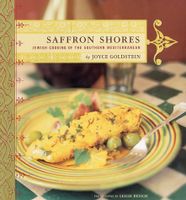Advertisement
Mimouna, or Maimouna
Published 2002
Most Jews celebrate Passover for eight days. However, in Morocco an additional day is added to the holiday, called Mimouna, sometimes spelled Maimouna. The origin of the word is debated. Some say it comes from the Hebrew Arabic mammon, which means “wealth,” indicating a day of prosperity. Others say it is derived from the Hebrew word emunah, meaning “faith.” Finally, some attribute it to the father of the scholar Moses Maimonides, Maimon, whose death is commemorated the day after Passover. A festival of friendship, it is characterized by visits to many homes on one night. People first go to the rabbi’s house, then to their parents’ homes, and then to other homes that are significant in their relationships. It is a traditional time for matchmaking. At each house there is singing, an exchange of blessings, and a sampling of a token food. Tables are set with an array of sweets, cookies, marzipan, stuffed dates, macaroons, and so on. These sweets conform to the Passover regulations, as they were prepared during the holiday. Symbols of good luck are also on the table: a bowl of fresh flour, a sheaf of new wheat, a raw whole fish, a jar of honey, pitchers of milk and wine, eggs, a crystal bowl of dates.

